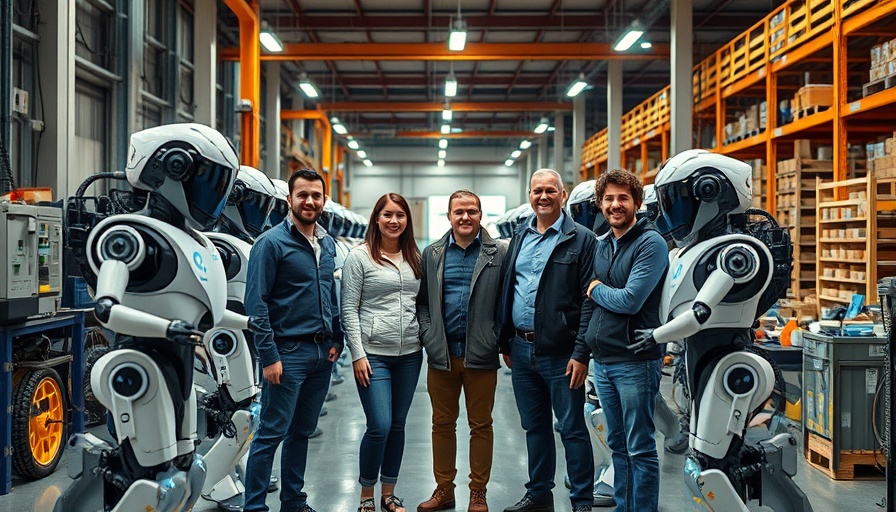
The Rise of AI in Waste Management and Recycling
With the increasing urgency surrounding environmental sustainability, small and medium-sized businesses are looking to innovative solutions to tackle waste management challenges. A prime example is the Italian startup Ganiga, which is set to showcase its waste-sorting robots at TechCrunch Disrupt 2025. These AI-enabled robotic waste bins aim to elevate recycling rates by automating the sorting process -- a critical need as less than 10% of the world’s plastic is currently recycled.
Ganiga's Innovative Solutions
Ganiga has created a fleet of robotic bins, called Hoooly, capable of recognizing and sorting waste through generative AI technology. In addition to this, they offer smart lids that can be added to existing bins, enabling the same functionality. Their software also helps businesses track waste outputs and suggests strategies to minimize waste. This trifecta of products not only aids in efficient waste management but could also reduce operational costs for companies, an attractive prospect for decision-makers in any industry.
Transforming Waste Management from Cost Center to Strategic Advantage
Companies are beginning to view waste management not just as a compliance necessity but as a strategic opportunity. Advances in AI-driven waste sorting technology demonstrate tangible benefits, including significant cost savings and improved sustainability metrics. Organizations are increasingly compelled to comply with stringent ESG regulations, making it essential to adopt smart waste management practices. According to a report, environmental management software markets are projected to grow significantly, indicating a shift in how businesses perceive waste. Investing in solutions like Ganiga's technology can turn waste from a liability into an asset, paving the way for long-term financial and environmental sustainability.
User-Friendly Technology for Everyday Challenges
For small and medium-sized enterprises, the appeal of Ganiga’s products lies not just in their technological prowess but also in their practicality. With the ease of integrating smart devices into existing systems, companies can significantly simplify waste sorting and tracking processes. As Nicolas Zeoli, the founder of Ganiga, stated, the goal is to reclaim the waste problem by providing effective tools that create actionable data. This data not only helps in the sorting process but also aids companies in making data-driven decisions to enhance recycling efforts.
Looking Ahead: What This Means for Businesses
As Ganiga prepares to showcase its AI-powered solutions at TechCrunch Disrupt, it suggests a potentially transformative moment for waste management in various sectors. The data generated from their robotic systems could lead to smarter operational choices, better compliance with waste regulations, and ultimately, a more significant contribution to the circular economy. For decision-makers at small and medium enterprises, the message is clear: adopting AI in waste management can bring both compliance and profitability, encouraging businesses to take the leap forward.
In a time where sustainability is crucial for growth, exploring innovative technologies in waste management presents an opportunity for businesses to improve efficiency and environmental performance. As Ganiga's promising technology gets ready to hit the spotlight, the conversation around AI's role in waste sorting just might shift the industry landscape dramatically.
 Add Row
Add Row  Add
Add 










Write A Comment